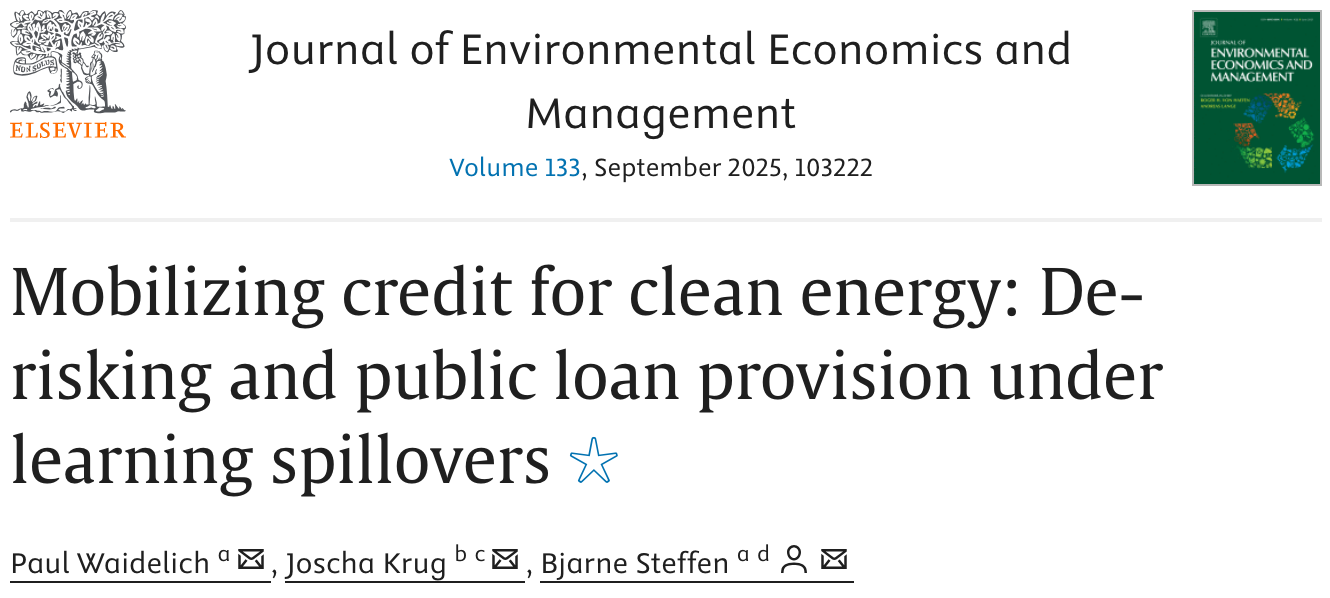'Mobilizing credit for clean energy': Study published in JEEM
I am happy to share that our study on Mobilizing credit for clean energy: De-risking and public loan provision under learning spillovers – joint work with Paul Waidelich and Bjarne Steffen from ETH Zürich – has just been published in the Journal of Environmental Economics & Management.
In it, we study how governments can effectively ensure that promising but immature technologies – think, for instance, of offshore wind power as a recent example – receive sufficient funding to become financially viable in the long run. Obviously, a carbon price and research subsidies are a key part of the answer. But we make the point that there is a financial side to the problem as well that calls for a smartly designed mix of loan subsidies (e.g. credit guarantees) and public loans (e.g. direct funding from state investment banks like KfW or EIB).
These financial policies can help kickstart novel technologies that are too risky to receive private funding at an early stage. Through the experience that financial institutions gain from early-stage investment, the technologies can become economically viable in the long run and attract the amount of private capital required for large-scale deployment.
This is because banks charge a substantial immaturity premium when providing loans to a novel technology, that may have no track record and an unfamiliar payout and risk profile. This makes projects based on the technology prohibitively expensive in the beginning. However, as the financial sector gathers sufficient experience with the technology, the immaturity premium can shrink to a point where such projects do become profitable even without government support.
To achieve such long-run profitability, the two most common financial policies – de-risking private loans (through credit guarantees or other implicit loan subsidies) and directly providing public loans – have different strengths and weaknesses that should be combined in a smart way. De-risking subsidies can ensure that each bank takes into account the positive effect of its own early-stage loan provision on sector-wide long-term profits. Public loans can directly generate financing experience with the new technology. The former is helpful to solve the cooperation problem – meaning that banks will under-invest in the novel technology because they do not consider that their early-stage investment will have positive spillover effects on the sector as a whole. The latter can solve the coordination problem – meaning that the banking sector may remain stuck in a ‘bad equilibrium’ where no bank invests into the novel technology because it is likely to fail unless sufficient other banks follow suit.
